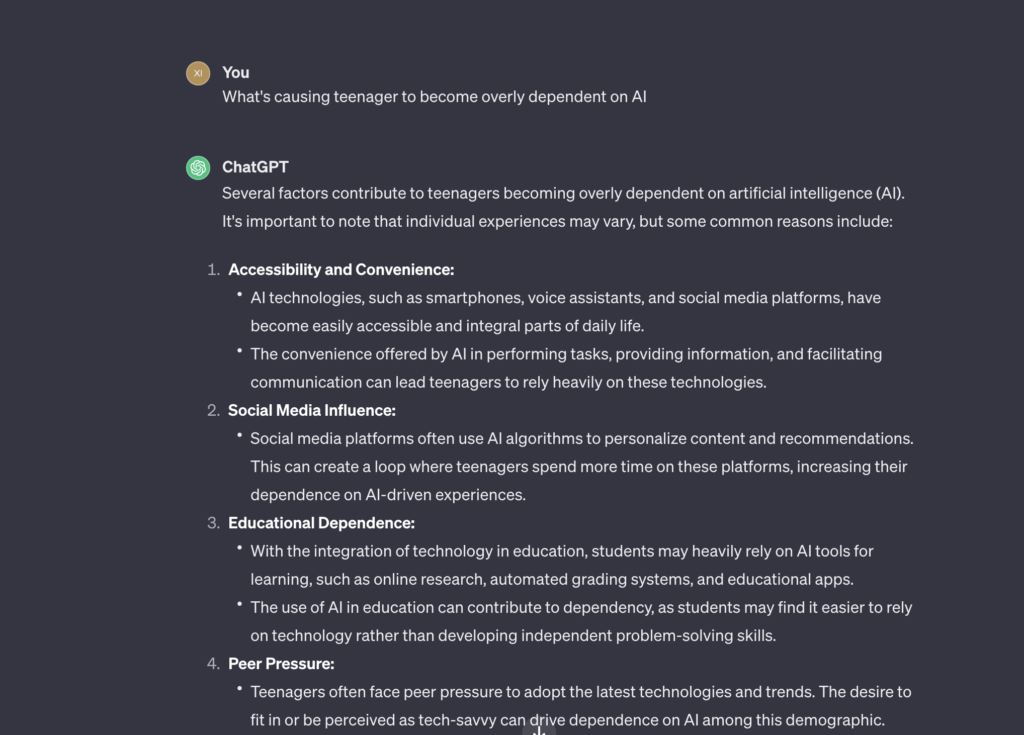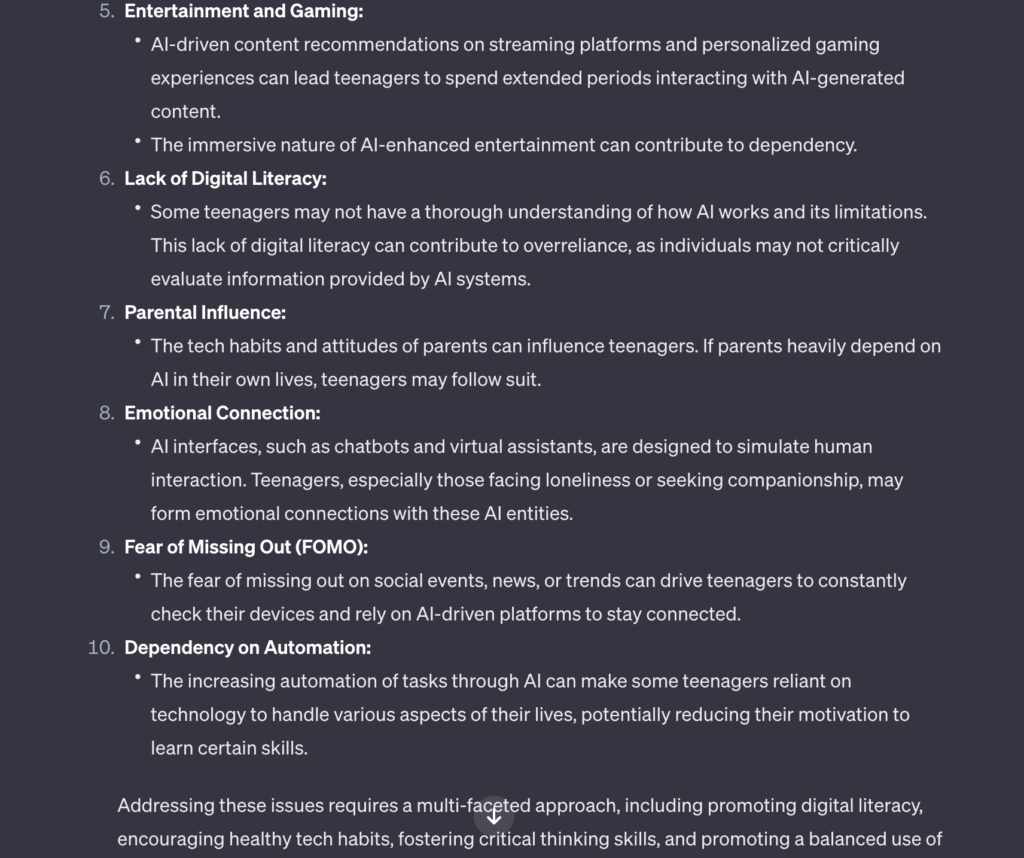

Have you used AI applications before? If you have, what have you used them for? What apps have you come across that are not in the Explore section that you’ve found useful?
I would like to express my perspective on artificial intelligence. Firstly, as a college student, I believe that AI has brought many shortcuts to my life. I personally major in social sciences and economics, which often involves reading numerous articles. Using AI to accurately summarize the content of these articles not only saves time for other activities but also provides a clear understanding of the articles’ content. However, AI also has some shortcomings. For instance, there are times when it cannot accurately determine what you want. Sometimes, I find myself troubled by difficult-to-understand paragraphs, and I choose to copy and paste them for AI to translate into my native language. While this may seem time-saving, most of the time, AI cannot accurately translate these passages.
How might the use of these tools create a more inclusive learning experience? Who might be excluded?
The use of artificial intelligence may bring more benefits to diligent individuals, but it can be detrimental to those who seek shortcuts. For example, a high-achieving student may utilize AI to study more efficiently and gain a deeper understanding of various subjects within the same time frame. On the other hand, for students lacking motivation, AI not only assists them in completing assignments but also enables them to breeze through online exams and similar tasks. Students who heavily rely on AI for completing tasks may lack the ability to learn independently. This could have implications for their future career development and problem-solving skills.
What guidelines do you think should be in place to guide their use in an educational institution? What factors should be considered?
Therefore, some educational institutions need to ensure that each student completes their assignments independently. Similarly, schools can use plagiarism detection tools to check whether students have personally completed their assignments. As a result, educators need to carefully integrate artificial intelligence tools to ensure their use contributes to sparking students’ interest in learning and enhancing their ability for independent study, rather than merely providing an easy way out. Encouraging students to develop critical thinking and problem-solving skills is also a crucial educational goal, and artificial intelligence can serve as an auxiliary tool in achieving these objectives.
What might you use AI tools for moving forward? What would you not use them for?
OpenAI. (2023, Nov. 22). [ChatGPT response about examples of advantages/disadvantage of using AL] https://chat.openai.com
Potential Uses of AI Tools:
- Information Retrieval and Summarization
- Language Translation
- Coding Assistance
- Content Creation
- Data Analysis
Considerations and Limitations:
- Critical Decision-Making Caution
- Creativity and Originality Limitations
- Importance of Personal Relationships
- Privacy and Security Concerns
- Avoid Overreliance in Education
I personally believe:
what he said makes sense, especially the fifth point. Overreliance on artificial intelligence can lead to a loss of direction and motivation in life. In many situations, applying human judgment is the optimal choice.
Reference
OpenAI. (2023, Nov. 25). [ChatGPT response about What’s causing teenager to become overly dependent on AI] https://chat.openai.com
Leave a Reply
You must be logged in to post a comment.